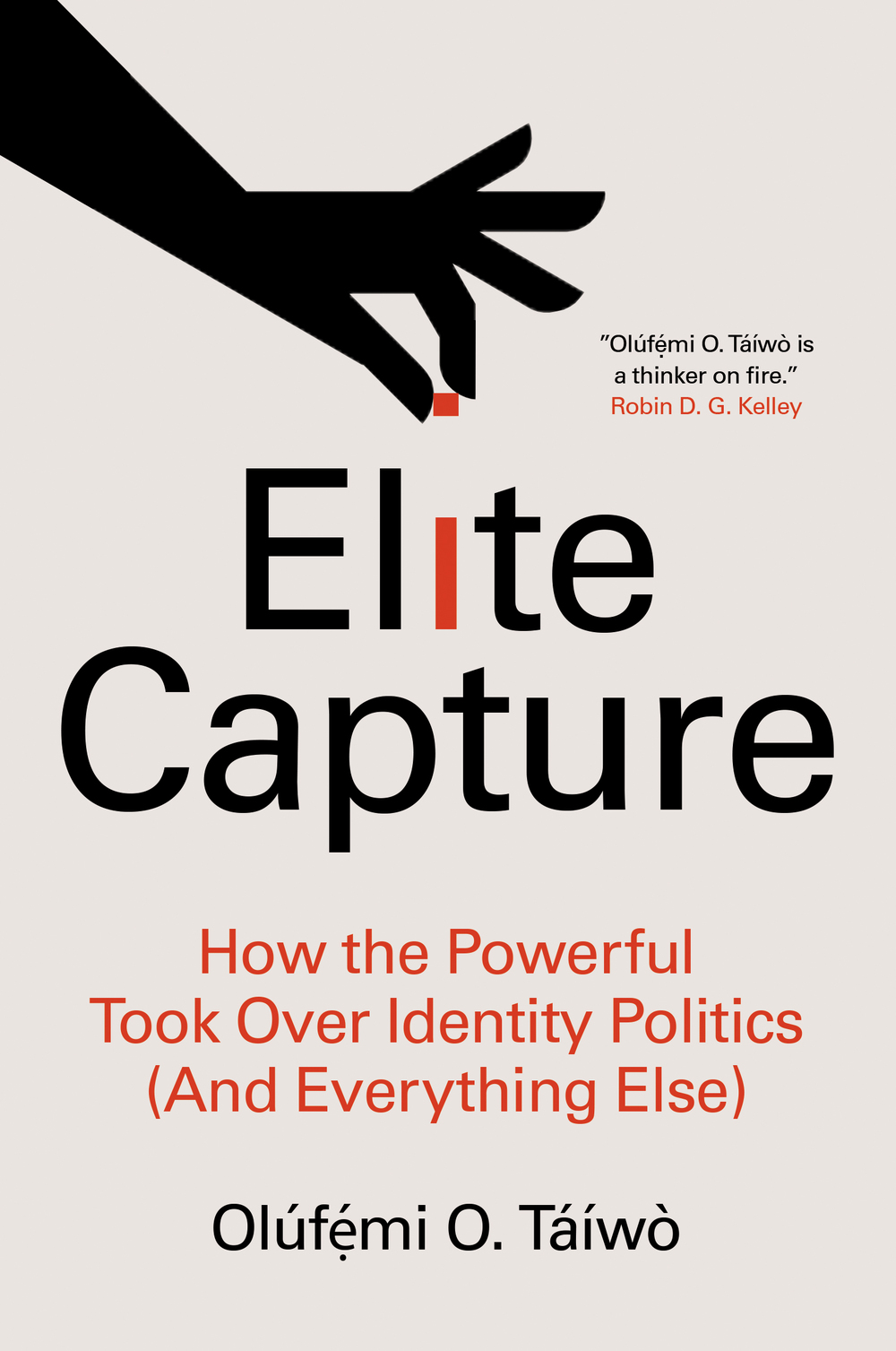Ishan esai-eller: In the introduction to Elite Capture, you trace the transformation of the concept of identity politics from the Combahee River Collective’s radical, coalitional, and socialistic conception to today’s largely symbolic, elite-captured version, which you term “deference politics.” As a corrective, you propose a distinctly materialist “constructive politics” oriented toward collective political action. You describe this approach as a form of what the political theorist Adom Getachew calls “worldmaking.” Could you discuss how constructive politics works as a form of worldmaking, and how this differs from the conceptual underpinnings of deference politics?
Olúfẹ́mi The basic thing constructive politics emphasizes is that the way you change the world is by changing the world. I think there’s a tendency, especially by people who embrace deference politics, to add a step: challenging particular beliefs that explain why people fail to change the world, for example. This isn’t completely wrong or misguided. We absolutely should be engaging in political education and challenging bad ideas, but it shouldn’t take primacy over our actual ability right now to simply make things different. There are a variety of ways that we can change the decision-making environment for ourselves and for the people who will come after us. We can build lasting institutions; we can build communal practices; we can build political infrastructure—and those are all things that we have a very good precedent of doing. Labor unions are a tried-and-true example of this. The kind of work that [Amazon organizers] Chris Smalls and Derek Palmer are doing is exactly the kind of thing that we would need if we want a better version of identity politics.
IDG: I was struck by one of the book’s final lines, in which you write that “deference politics asks us to be less than we are.” What does that mean, and what does it tell us about identity politics?
OT: That line comes at the tail end of a discussion about trauma and the particular politics that have built up over the last decades about the political salience of trauma. The fact that trauma is now taken seriously [as a political question] is unquestionably a positive development. But the way that trauma has been wielded as a credential cheapens both it and us. One of the most important things about what trauma ends up meaning in someone’s life is the ways people respond to you when you tell them about trauma. Do you have relationships with people such that you could tell someone about your trauma? What kind of relationships do you have after trauma? Are they nurturing ones where you can demand respect, have respect demanded of you, and continue to participate as an adult equal? Those tend to be the kind of relationships that facilitate recovery.
Those are all environmental facts that aren’t about the trauma itself; they’re about the social world that you inhabit around the trauma. And deference politics takes the importance of trauma and wields it against itself—because if what’s important is the social ecology around trauma, we should be figuring out how to participate in meaningful ways with people who have been traumatized and not just giving trauma a microphone. Whether we’re talking about how we deal internally with our own trauma, or how we deal with trauma in people around us, I don’t think the deferential approach to trauma is a productive, helpful, or fair one.
